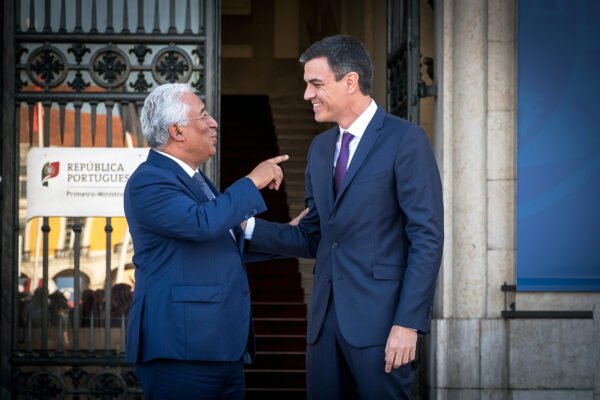
Spanish prime minister Pedro Sánchez has pardoned the nine Catalan separatists who were imprisoned for organizing an unsanctioned independence referendum in 2017.
The pardons fall short of an amnesty. Former regional vice president Oriol Junqueras and the other politicians who were convicted to between nine and thirteen years in prison for “sedition” against the Spanish state and misuse of government funds are still barred from holding public office.
“Sedition” remains a crime. (Although Sánchez’ government is looking into revising the arcane statute.) A vote on Catalan independence would still be illegal. It’s why I argued a month ago a pardon was the least Sánchez could do.
Here’s what he should do next.
Sánchez’ promise
When Sánchez was reelected in 2019, he offered Catalans a good deal: the possibility of a pardon (now granted) and the resumption of official dialogue between the Catalan regional government in Barcelona and the central government in Madrid.
Those talks were suspended by Sánchez’ conservative predecessor when Catalonia voted for independence in 2017. Unionists boycotted the referendum: turnout was 43 percent. Spain nevertheless revoked Catalan self-rule and forced the region to hold early elections.
Sánchez was never going to sanction an independence referendum. He can’t, not without changing the Constitution or revising the composition of the Constitutional Court, which ruled in 2017 that a referendum was illegal. Either attempt would be blocked by right-wing opposition parties in Congress. Sánchez leads a minority left-wing government.
That doesn’t mean Catalans have to give up on a referendum. Between 70 and 80 percent want one, according the polls. The Catalans have a right to self-determination, even if Spain won’t recognize it.
It does mean they should prioritize other, realizable, demands.
Next steps
- Five former members of the Catalan government still live in self-imposed exile. Among them is Carles Puigdemont, the former regional president and a member of the European Parliament, who resides in Belgium. Spain should withdraw their arrest warrants and allow them to come home.
- Sánchez should complete the transfer of competencies Catalonia was promised in 2006, but which previous, conservative governments postponed. Specifically in labor law, maritime rescue and scholarships.
- Responsibility for health care, infrastructure, law enforcement and social security is “shared” between regional and national authorities. Conservatives have used this ambiguity to delay infrastructure investments in Catalonia and force the region to cut social security benefits, even when they are paid for entirely by Catalans.
- Catalans have long demanded fiscal rights similar to the Basques, who collect their own taxes and send part of the money to Madrid. Catalonia collects some taxes itself, but the bulk is collected by the Spanish government, which sends a share back to Catalonia.
- Put these change — rationalization of “shared” powers, additional tax autonomy — to Catalan voters in a referendum, similar to the 2006 referendum, which was the last time Catalan home rule was revised. (Sánchez said in 2018 such a referendum might be possible.)
Will this satisfy all separatists? No. Some will accept nothing short of independence. But polls suggest hardliners are under a third of the electorate. The broad middle of Catalan voters — some of whom dream of a Catalan republic, some of whom would prefer to remain Spanish — could support more self-government.
Will it outrage Spanish nationalists? Of course. But they have been in a permanent stage of outrage since 2017 and will resist any and all concessions. So Sánchez may as well make those concessions that could reduce the institutional tension between Catalonia and the rest of Spain.
Third way
I’ve argued for years Catalonia needs a third way between secession and the status quo. The alternative is more polarization, which sucks the air out of other political debates.
Catalan politics already revolves around the independence issue, forcing left- and right-wing separatists into unwieldy coalitions and preventing more natural alliances on bread-and-butter issues. There is a left-wing majority in the Catalan parliament, but because the center-right is needed for a separatist majority, policies like a basic income and rent control are not as far-reaching as the left would have wanted them to be.
National politics is overshadowed by Catalan independence as well. Sánchez twice tried to form a coalition government with the liberal Citizens, but their insistence on a hard line against Catalonia — revoking the region’s autonomy — forced the social democrat into a pact with far-left, Basque and Catalan parties.
The extremes benefit. Catalan separatists expanded their majority in the most recent regional election. The far right, which wants to dismantle all regional autonomies and recentralize power in Madrid, has returned to Congress for the first time since the end of the dictatorship. The conservative People’s Party has lurched to the right and calls Sánchez a “traitor” for even negotiating with the Catalans.
Sánchez has a chance to reverse this dynamic by proving reasonable compromises can still be made in the center.
